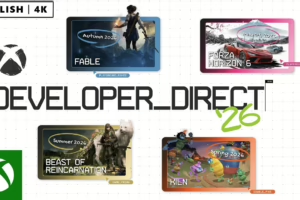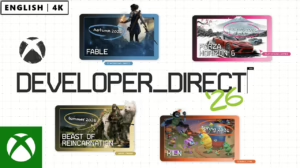Tech Titans and Trailblazers: Key Figures Who Shaped Modern Technology
Introduction
In the ever-evolving landscape of technology, certain individuals stand out as giants, influencing the trajectory of innovation, society, and culture. These tech titans and trailblazers have not only created groundbreaking products and services but have also established paradigms that have fundamentally changed how we live, work, and connect. This article will explore the lives and contributions of key figures in modern technology, from the pioneers of the early computer age to the architects of today’s digital world.
I. The Early Innovators
A. Alan Turing: The Father of Computer Science
Alan Turing’s contributions to computing cannot be overstated. Often considered the father of computer science and artificial intelligence, Turing’s work during World War II laid the groundwork for modern computing. His development of the Turing machine conceptualized the principles of algorithmic processing and computability.
Key Contributions:
-
The Turing Machine: A theoretical construct that becomes the foundation for modern computer science.
-
Cryptography: Turing played a crucial role in deciphering the Enigma code, significantly impacting the outcome of the war.
-
Concept of AI: Through his seminal paper, “Computing Machinery and Intelligence,” Turing introduced the Turing Test, a criterion of intelligence in machines.
B. Grace Hopper: Pioneer of Computer Programming
Grace Hopper, often celebrated as a trailblazer for women in technology, made significant advancements in computer programming. Her development of the COBOL programming language revolutionized how businesses managed data.
Key Contributions:
-
COBOL Language: Her work on this programming language made it accessible for business applications, which drove automation in the corporate world.
-
Debugging: The term “debugging” is attributed to her; she famously removed a moth from a computer, highlighting the importance of software maintenance.
C. John von Neumann: The Architect of Modern Computing
John von Neumann’s work in mathematics and physics has had a lasting impact on various fields, including computer science. His pioneering ideas in computing architectures laid the foundation for the design of digital computers.
Key Contributions:
-
Von Neumann Architecture: This architecture, which includes a stored program concept, is used in virtually all modern computers.
-
Game Theory: His principles in game theory have influenced economics, military strategy, and artificial intelligence.
II. The Rise of Personal Computing
A. Steve Jobs: The Visionary of Apple Inc.
Steve Jobs co-founded Apple Inc. and transformed the technology landscape by emphasizing design and user experience. His relentless pursuit of perfection led to a series of revolutionary products that changed how people interact with technology.
Key Contributions:
-
Apple I and II: These early personal computers popularized computing in homes and schools.
-
Macintosh: The introduction of the Macintosh in 1984 featured a graphical user interface, making computers more user-friendly.
-
iPhone: Jobs led the development of the iPhone, which redefined mobile communication and computing.
B. Bill Gates: The Software Mogul
Bill Gates co-founded Microsoft, a company that became synonymous with personal computing. His vision of making software available for everyone was instrumental in the computer revolution.
Key Contributions:
-
Microsoft Windows: Gates’ development of Windows made personal computing accessible to millions.
-
Philanthropy: Post-retirement, Gates has focused on global health and education through the Bill & Melinda Gates Foundation.
C. Linus Torvalds: Creator of Linux
Linus Torvalds’ creation of the Linux operating system has had a transformative impact on software development and the open-source movement. His collaborative approach set a precedent for community-driven software.
Key Contributions:
-
Linux OS: Torvalds’ development of Linux has become a backbone for many servers and devices globally.
-
Open Source Movement: His philosophy has encouraged innovation and collaboration, allowing developers worldwide to contribute to and improve software.
III. The Internet Revolution
A. Tim Berners-Lee: Inventor of the World Wide Web
Tim Berners-Lee’s invention of the World Wide Web has reshaped the way we access and share information. His vision of a free and open web has had profound implications for society.
Key Contributions:
-
HTML: The creation of Hypertext Markup Language (HTML) enabled web pages to be structured and linked.
-
Web Standards: Berners-Lee founded the World Wide Web Consortium (W3C), advocating for open standards to ensure the longevity and accessibility of the web.
B. Marc Andreessen: Web Browser Pioneer
Marc Andreessen co-authored Mosaic, one of the first widely used graphical web browsers. This innovation made the web accessible to the general public, catalyzing the internet boom of the 1990s.
Key Contributions:
-
Netscape: Co-founding Netscape Communications Corporation created one of the first commercial web browsers, significantly influencing the internet landscape.
-
Venture Capital: As a venture capitalist, Andreessen has funded several successful tech startups, continuing to shape the technology ecosystem.
C. Jeff Bezos: E-Commerce Visionary
Jeff Bezos founded Amazon, a company that began as an online bookstore and evolved into a global e-commerce giant. His vision for convenience and customer service has disrupted traditional retail.
Key Contributions:
-
E-Commerce: Bezos revolutionized the way consumers shop, promoting the idea of one-click shopping and personalized recommendations.
-
Cloud Computing: Under Bezos’ leadership, Amazon Web Services (AWS) has become a leader in cloud computing, changing the business landscape.
IV. Modern Titans of the Tech Industry
A. Elon Musk: Innovator and Disruptor
Elon Musk’s ventures span electric vehicles, space exploration, and renewable energy, marking him as one of the most influential figures in today’s tech industry.
Key Contributions:
-
Tesla, Inc.: Musk has propelled electric vehicles into the mainstream, emphasizing sustainability and renewable energy sources.
-
SpaceX: His work with SpaceX has made significant strides toward reusable rockets and the colonization of Mars, reshaping aerospace technology.
B. Sundar Pichai: CEO of Google
Sundar Pichai’s leadership at Google has fostered innovation in search, advertising, and artificial intelligence. Under his guidance, Google has expanded its services while maintaining its core focus on user experience.
Key Contributions:
-
Google Assistant: Pichai has overseen the development of AI-driven services that enhance user interaction across devices.
-
Alphabet: As the CEO of Alphabet Inc., Pichai has emphasized a commitment to sustainability and responsible technology development.
C. Satya Nadella: Transforming Microsoft
Satya Nadella’s leadership has transformed Microsoft’s culture and product offerings, emphasizing cloud computing and artificial intelligence. His human-centric approach has revitalized one of the tech industry’s longstanding giants.
Key Contributions:
-
Azure: Nadella has driven the growth of Microsoft Azure, positioning it as a major player in the cloud service market.
-
Diversity and Inclusion: His commitment to fostering a more inclusive workplace has inspired broader changes in tech company cultures.
V. The Future of Technology
A. Artificial Intelligence and Machine Learning
As technology advances, figures like Yann LeCun, Geoffrey Hinton, and Andrew Ng are at the forefront of AI and machine learning. Their research and innovations are transforming industries, from healthcare to finance.
Key Contributions:
-
Deep Learning: Their work has led to breakthroughs in neural networks and machine learning algorithms.
-
AI Ethics: These leaders are also advocating for responsible AI, addressing the challenges posed by rapid technological advancement.
B. The Internet of Things (IoT)
Key figures such as Kevin Ashton, who coined the term “Internet of Things,” are pioneering the integration of technology into everyday objects. This revolution is creating smarter cities and more efficient industries.
Key Contributions:
-
Connected Devices: Innovators are working on devices that enhance convenience and efficiency, from smart home technology to industrial applications.
-
Data Security: As IoT expands, addressing privacy and security concerns will become paramount—a challenge that today’s leaders are working to solve.
C. Blockchain and Decentralization
Figures like Vitalik Buterin, the co-founder of Ethereum, are leading the charge in blockchain technology, promoting decentralization and transparency in various sectors.
Key Contributions:
-
Smart Contracts: Buterin’s work has enabled programmable contracts that execute automatically when conditions are met, unlocking new business models.
-
Financial Inclusion: Blockchain presents opportunities for untapped markets, providing access to financial services for unbanked populations.
Conclusion
The influence of tech titans and trailblazers extends far beyond the products they create; they shape our society, economy, and future. As we stand on the brink of further technological advancement, it is crucial to recognize the historical context and the visionary leaders who paved the way. Understanding their stories offers valuable lessons for the next generation of innovators and those aspiring to make a mark on the world. As we move forward into an increasingly digital age, the contributions of these figures serve as a testament to the relentless pursuit of knowledge, innovation, and the betterment of humanity.
References
- Turing, A. (1950). Computing Machinery and Intelligence. Mind, 59(236), 433-460.
- Hopper, G. M. (1980). The Education of a Computer Scientist. Communications of the ACM, 23(4), 258-261.
- Berners-Lee, T. (1996). The World Wide Web: A Very Short Introduction. Oxford University Press.
- Andreesen, M. (1993). The Mosaic Web Browser. Communications of the ACM, 36(4), 38-41.
- Nadella, S. (2017). Hit Refresh: The Quest to Rediscover Microsoft’s Soul and Imagine a Better Future for Everyone. Harper Business.
This article provides an in-depth exploration of the individuals who have significantly shaped modern technology, presenting a rich narrative that highlights their contributions and ongoing influence on our world.


























Add Comment